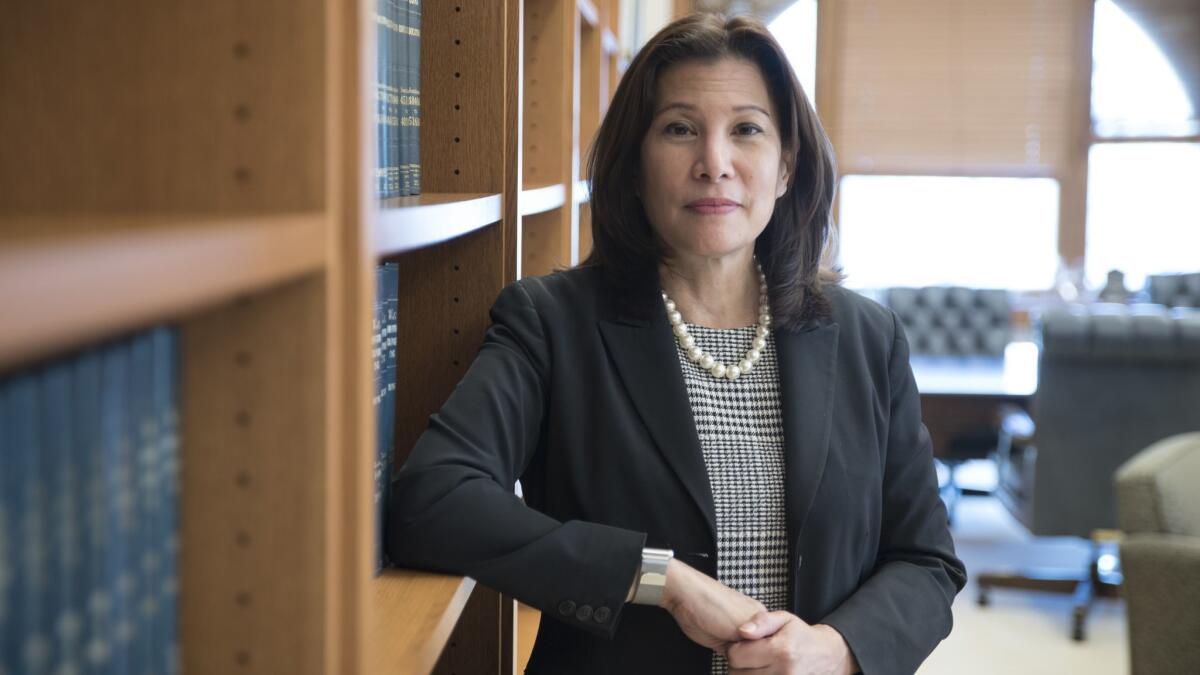Judges should make public sexual harassment settlements, California’s chief justice says

Chief Justice Tani G. Cantil-Sakauye said Tuesday that California’s courts should disclose the names of judges who entered into settlements to resolve complaints of sexual harassment and discrimination.
“I want to make sure there’s no ambiguity as to whether courts should be required to disclose those records now,” Cantil-Sakauye said in a written statement.
The Times and other news organizations in California have sent requests to trial and appellate courts in the state asking for the names of judicial officers who have reached settlements to resolve accusations of sexual harassment or sexual discrimination.
Cantil-Sakauye said a court rule governing the matter “does not make clear enough that these records should be disclosed.”
“Judicial independence relies in part on judicial accountability,” she said. “The judiciary relies on the trust and confidence of the public it serves, and the public has a right to know how the judicial branch spends taxpayer funds.”
She named five members of the Judicial Council, the administrative body for the courts, to revise the rule: Justice Marsha G. Slough, Judge Stacy Boulware-Eurie, Judge Kyle S. Brodie, and attorneys Gretchen Nelson and Rachel W. Hill.
The Judicial Council, which Cantil-Sakauye heads, will have to approve the rule change. A spokesman for the council said the rule could be revised within a month.
In March, the Judicial Council produced documents that showed California’s court system paid more than $500,000 over seven years to resolve sexual harassment complaints against judges and staff.
The Judicial Council said at the time that it could not reveal names because of attorney-client privilege and the court rule governing such disclosures.
The council acts as a lawyer for the courts in addition to doling out state money and providing services.
The legal office of the Judicial Council said in March that it would contact the courts and individuals involved in the settlements to find out if they would waive their privilege to allow for the records’ release.
The Times followed up by making separate requests for information to county and appellate courts. County courts can resolve sexual harassment cases without reporting to the Council.
So far, Inyo County Superior Court, responding to a Times request, has said it had no cases to report. San Francisco Superior Court asked for additional time to research the request.
The California Legislature has disclosed 18 cases of sexual harassment involving lawmakers and staff, and identified the names of the legislators involved.
Twitter: @mauradolan
More to Read
Sign up for Essential California
The most important California stories and recommendations in your inbox every morning.
You may occasionally receive promotional content from the Los Angeles Times.






